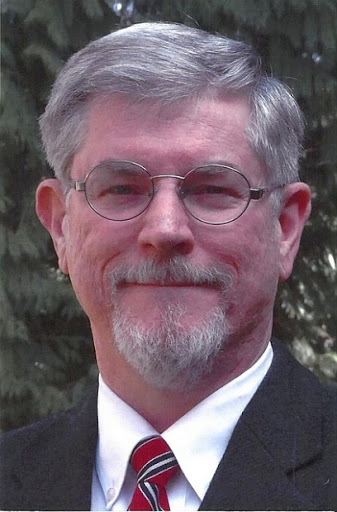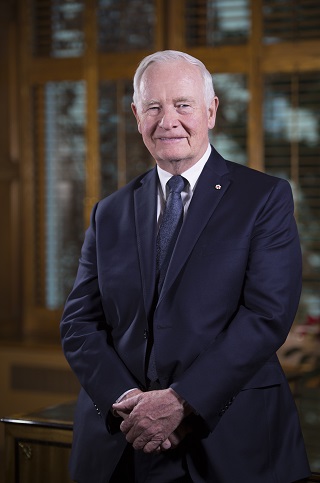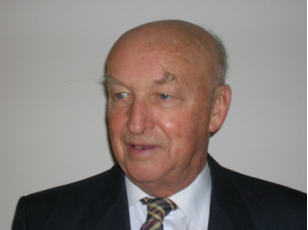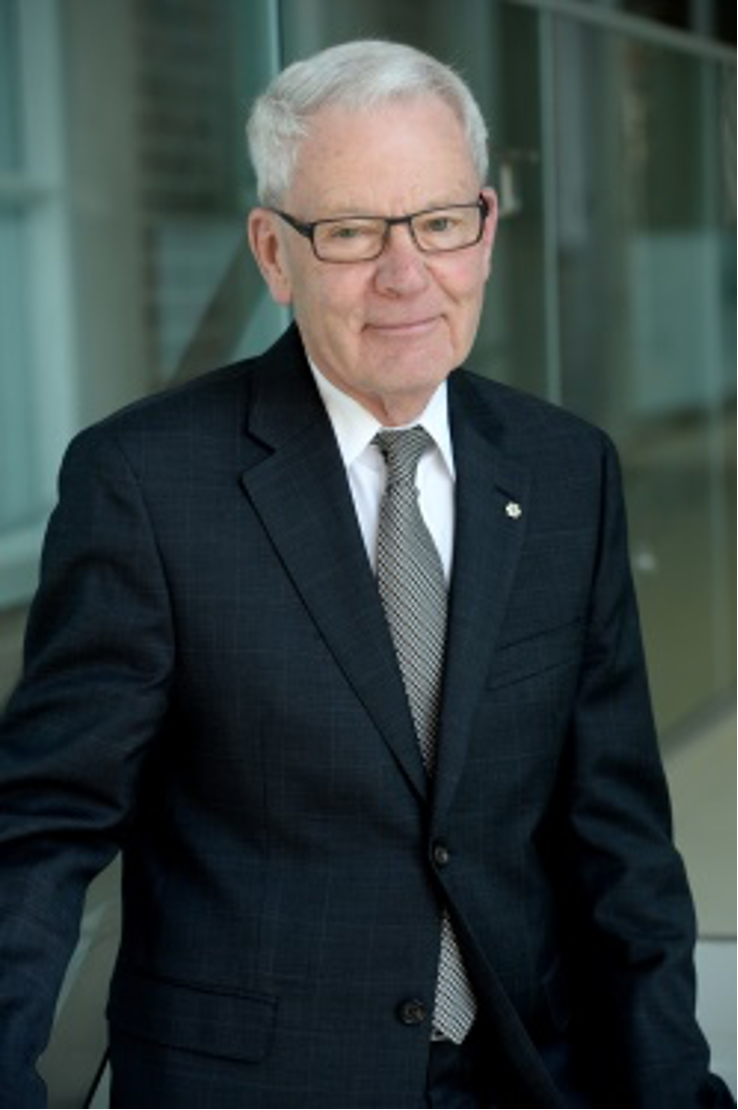August 20, 2020
The Institute for the Study of the Crown in Canada has announced its first Fellows. They are leading scholars, journalists, and practitioners of the Crown in Canada, among them former governor general David Johnston.
The Institute’s new College of Fellows has a two-fold purpose: to recognize distinguished persons who have made major contributions to the study of the Crown; and to associate them with the Institute’s program of educating Canadians on the Crown through policy papers, articles and lectures. The eight inaugural Fellows are acknowledged authorities on the Canadian Crown, with many publications to their credit. Their names and biographies appear below.
The Institute for the Study of the Crown in Canada was founded at Massey College in the University of Toronto in 2005. The mission of the Institute is to enhance knowledge and understanding of the constitutional role of the Crown in Canada, particularly the functions performed by the sovereign, governor general, and lieutenant governors. The Institute has sponsored four policy conferences, in Ottawa (2010), Regina (2012), Victoria (2016), and Toronto (2019). It has published five books, including one on the crucial relationship between the Crown and the Indigenous peoples.
List of inaugural Fellows
John Fraser, CM (Toronto)
Master Emeritus of Massey College and Founding President, Institute for the Study of the Crown in Canada

In his distinguished and award-winning tenure at The Globe and Mail, journalist and author John Fraser was a dance and theatre critic, a China correspondent, UK-based European correspondent, Ottawa bureau chief, national columnist and national editor, before becoming editor of Saturday Night magazine from 1987-1994. He has been a columnist at The Toronto Star and the National Post and has published in everything from the New York Times to Paris Match and The Guardian. He is author of twelve books, including the internationally-acclaimed The Chinese: Portrait of a People (1980), Eminent Canadians (2000), and The Secret of the Crown: Canada’s Affair with Royalty (2012).
Mr. Fraser was Master and Chair of the board of Massey College in the University of Toronto from 1995 to 2014, before becoming founding president and CEO of the National NewsMedia Council, the principal media ethics watchdog in Canada. He currently serves as the Council’s executive chair. A Member of the Order of Canada, he is founding president of the Institute for the Study of the Crown in Canada. In 2016, in recognition of his long and continuing career in the profession, he was named to the Canadian Journalism Hall of Fame. In 2020 he received the prestigious Michener-Baxter Special Award from the Michener Awards Foundation for long-term achievement in public service journalism.
Dr. Andrew Heard (Vancouver)
Professor of Political Science, Simon Fraser University

Andrew Heard is a Professor in the Political Science Department at Simon Fraser University and a past president of the British Columbia Political Studies Association. Having studied at Dalhousie University, the London School of Economics, the University of Toronto, and Oxford University, he previously taught at Dalhousie University and at Rhodes University in South Africa, where he was born. The research over the course of his career has spanned law and politics, sparked by an interest in the “rules of the game” and the institutions that structure Canada’s political society.
A focus of Dr. Heard’s research is on the monarchy and how it has evolved since Confederation, from a single imperial office into something embedded domestically in Canada’s national and provincial governments—while still shared with fifteen other countries. The nature and powers of Canada’s vice regal offices are particular subjects of his study. Also known for his work on constitutional conventions, the informal rules which define how public officials should exercise their legal powers, he has published two editions of Canadian Constitutional Conventions: The Marriage of Law and Politics. Other research interests cover a range of Canadian constitutional and institutional issues such as Senate reform, parliamentary privilege, federalism, elections, and the courts.
Dr. D. Michael Jackson, CVO, SOM, CD (Regina)
President, Institute for the Study of the Crown in Canada

After an academic career in French studies, including a doctorate at l’Université de Caen (France), Michael Jackson was chief of protocol for Saskatchewan from 1980 to 2005. During this time he established the provincial honours program, was author of a number of educational booklets on the Crown and honours, and coordinated ten visits of members of the Royal Family. From 1998 to 2005 he was also executive director of Government House Heritage Property in Regina.
In 1987 The Queen invested Michael Jackson as a Lieutenant of the Royal Victorian Order (LVO) in recognition of his services to the Royal Family and in 2005 promoted him to Commander (CVO). He was appointed a member of the Saskatchewan Order of Merit (SOM) in 2007. An ordained Anglican deacon, he has written extensively on the diaconate in an ecumenical context. Dr. Jackson is author of The Crown and Canadian Federalism (2013); co-editor of The Evolving Canadian Crown (2012) and Canada and the Crown: Essays on Constitutional Monarchy (2013); and editor of The Canadian Kingdom: 150 Years of Constitutional Monarchy (2018) and of Royal Progress: Canada’s Monarchy in the Age of Disruption (2020). He is president of the Institute for the Study of the Crown in Canada.
The Rt. Hon. David Johnston, PC, CC, CMM, COM, CD (Ottawa)
Former Governor General of Canada

The Right Honourable David Johnston was Canada’s twenty-eighth governor general, serving from 2010 to 2017. During his mandate, he established the Rideau Hall Foundation (RHF), a registered charity that supports and amplifies the Office of the Governor General in its work to connect, honour, and inspire Canadians.
Today, he is actively involved as Chair of the RHF Board of Directors; and serves on a number of corporate and not-for-profit boards. In 2018, he was appointed Colonel of the Royal Canadian Regiment. Prior to his installation as governor general, Dr. Johnston was a professor of law for 45 years. He served as President of the University of Waterloo for two terms and Principal of McGill University for three terms. He was president of the Association of Universities and Colleges of Canada and of the Conférence des recteurs et des principaux des universités du Québec.
Dr. Johnston was the first non-U.S. citizen to be elected chair at Harvard University’s Board of Overseers, from which he graduated in 1963 magna cum laude; he was twice named all-American in hockey and was named to Harvard’s Athletic Hall of Fame. He holds degrees from Harvard, Cambridge and Queen’s and has received more than three dozen honorary degrees or fellowships. He has authored or co-authored more than thirty books. He was appointed a Companion of the Order of Canada in 1997.
The Hon. Serge Joyal, PC, OC, OQ, FRSC (Montréal)
Former Senator from Québec

The Honourable Serge Joyal was a Senator from 1997 to 2020 and chair of its Standing Committee on Legal and Constitutional Affairs, of which he was a member for twenty years. He studied law at l’Université de Montréal, la Faculté internationale de Droit comparé de Strasbourg (France), Sheffield University (UK), and the London School of Economics and Political Science. He has been an MP, a Minister and Secretary of State, and in 1980-81 co-chaired the Special Joint Committee that recommended the adoption of the Canadian Charter of Rights and Freedoms and the patriation of the Constitution.
As a jurist, he has intervened in a personal capacity on a number of occasions before various Canadian courts to defend the recognition of rights and freedoms and the fundamental principles of parliamentary institutions. He was an intervenor on the side of the Attorney-General of Canada in the challenges to the Succession to the Throne Act, 2013 before the Quebec Superior Court (2014-2016) and the Quebec Court of Appeal (2019).
A well-known collector and patron of the arts, he is the author and publisher of several articles and books related to parliamentary and constitutional law, as well as essays in social and political history. Among these are Protecting Canadian Democracy: The Senate You Never Knew (editor, 2003) and Le Mythe de Napoléon au Canada français (2013). He is Officer of the Order of Canada, Officier de l’Ordre national du Québec, and Commandeur de la Légion d’honneur (France).
Dr. Barbara J. Messamore, FRHistS (Vancouver)
Professor of History, University of the Fraser Valley

Barbara J. Messamore is a professor of history at University of the Fraser Valley. She earned a PhD at the University of Edinburgh and is a Fellow of the Royal Historical Society (UK). Author of Canada’s Governors General, 1847-1878: Biography and Constitutional Evolution (2006), she has published a number of articles on Canadian political and constitutional history, some with a special focus on the Crown in Canada, and on British Imperial history. She has served as an expert witness in legal cases concerning Canadian constitutional history.
Dr. Messamore is co-author of Narrating a Nation: Canadian History Pre-Confederation (2011) and of Conflict and Compromise: Pre-Confederation Canada (2017); has edited a published collection on migration in Canada, Canadian Migration Patterns from Britain and North America (2004); and co-founded and edited the Journal of Historical Biography. In 2014 she was a visiting scholar at Hughes Hall, University of Cambridge, and in 2017 was a visiting Professor in Canadian Studies at the University of Silesia. She is second vice-president of the Institute for the Study of the Crown in Canada.
Dr. Peter H. Russell, OC, FRSC (Toronto)
University Professor Emeritus at the University of Toronto

Peter H. Russell is a University Professor Emeritus at the University of Toronto. His scholarly interests embrace four areas – constitutional politics, judicial politics, settler-Indigenous relations, and parliamentary democracy. Among his publications are The Judiciary in Canada: The Third Branch of Government; Constitutional Odyssey: Can Canadians Become A Sovereign People; Recognizing Aboriginal Title: The Mabo Case and Indigenous Resistance to English-Settler Colonialism; and Canada’s Odyssey: A Country Based on Incomplete Conquests.
Dr. Russell has advanced the argument that monarchy is the best way of handling the need in a parliamentary system for duality at the top – separating the head of state from the head of government. The track record of monarchical parliamentary systems in terms of long-term stability, economic well-being, the respect for minorities and freedom is much better than the more numerous republican parliamentary systems. Peter Russell has served as President of the Canadian Political Science Association, Chairman of the Churchill Society for the Advancement of Parliamentary Democracy, Foreign Secretary of the Royal Society of Canada, and Chair of the Research Advisory Committee for the Royal Commission on Aboriginal Peoples. He is a Fellow of Trinity College and Massey College, a past-Principal of Innis College and founding Principal of Senior College at the University of Toronto. He is an Officer of the Order of Canada.
Dr. David E. Smith, OC, SOM, FRSC (Niagara-on-the-Lake, Ontario)
Adjunct Professor, Politics and Public Administration, at Ryerson University

David E. Smith is Adjunct Professor, Politics and Public Administration, at Ryerson University. He taught political studies at the University of Saskatchewan from 1964 to 2004 and then was a senior research fellow at the Johnson-Shoyama Graduate School of Public Policy in the University of Regina. He is a previous president of the Canadian Political Science Association. His publications include a trilogy of works on each of the parts of Parliament, as well as books on political parties, the constitution, and federalism.
The Invisible Crown: The First Principle of Canadian Government (1995) was reprinted with a new preface in 2013. The Republican Option in Canada, Past and Present appeared in 1999, The Canadian Senate in Bicameral Perspective in 2003, and Federalism and the Constitution of Canada in 2010. The People’s House of Commons: Theories of Democracy in Contention won the Donner Prize for the best book in Canadian public policy in 2007 and Across the Aisle: Opposition in Canadian Politics (2013) won the Canada Prize in Social Sciences in 2014. His most recent book (2017) is The Constitution in a Hall of Mirrors: Canada at 150. David E. Smith is an Officer of the Order of Canada, a Member of the Saskatchewan Order of Merit, and a Fellow of the Royal Society of Canada.